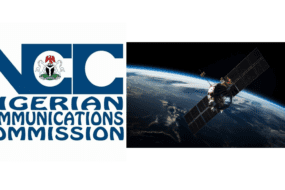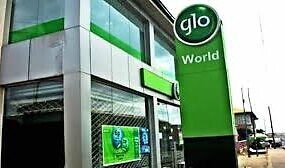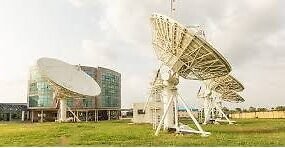Since October 2024, Nigerian customers eager to access Starlink’s satellite internet service have found themselves locked out from purchasing kits directly from the SpaceX-owned company. The halt, which Starlink attributes to overcapacity, has pushed buyers towards third-party retailers who continue to offer the kits despite the official freeze.
Demand for Starlink surged in late 2024, making it the second-largest internet service provider in Nigeria by subscriber base. However, since October, new customers in major cities like Lagos, Abuja, Benin City, and Port Harcourt have been placed on a waitlist, with direct orders from Starlink’s website unavailable.
Attempting to place an order only results in a standard message: “Starlink is currently at capacity in your area. However, you can place a deposit now to reserve your spot on the waitlist and receive a notification when service becomes available. We cannot provide an estimated timeframe for availability, but our teams are working to expand coverage as quickly as possible.”
This frustration has left many customers with no choice but to turn to third-party sellers.
Resellers Thrive Amid Starlink’s Sales Freeze
With official sales suspended, a new market has emerged for retailers willing to find workarounds. Joshua, CEO of JP Gadgets in Ikeja, Lagos, confirmed his business hasn’t experienced stock shortages. “Starlink is everywhere in the market. I don’t know why they’re not selling directly to individuals,” he said. “It’s possible they’re indirectly pushing customers to buy from distributors in Nigeria. Distributors order in bulk, which gives Starlink a bigger margin.”
Some resellers have reportedly resorted to using foreign addresses, particularly in Benin and Cameroon, to activate devices. According to Joshua Attah, CEO of The TechCorner in Abuja, Nigeria’s loose borders make this method effective.
However, these tactics have resulted in price discrepancies. While Starlink kits are officially priced at ₦590,000 ($375), third-party sellers have been charging as much as ₦650,000 ($413). Installation fees range from ₦30,000 ($19) to ₦50,000 ($32), depending on the provider and location.
Frustrations Over Costly Plans and Poor Customer Support
Even those who manage to acquire Starlink kits have reported issues with service plans. Many are pushed onto the more expensive “Roam Unlimited” mobile plan, which costs ₦49,000 ($31) monthly for regional roaming and a whopping ₦717,000 ($456) for global roaming.
“They’re forcing me to use the mobile roaming plan, which is way more expensive,” lamented Sochima, a network engineer based in Lagos.
Further complicating matters, Starlink’s customer support for Nigerian users has been described as nearly non-existent, with response times being excessively delayed. In contrast, American users reportedly enjoy almost instant support.
Starlink’s Future in Nigeria
The primary reason behind Starlink’s direct sales freeze appears to be its capacity constraints in high-demand areas like Lagos and Abuja. In November 2024, Elon Musk confirmed that the company had paused new sign-ups in major African cities due to overwhelming demand.
Starlink’s capacity issues can only be resolved by deploying more satellites or upgrading to high-capacity models like Starlink V2.0, both of which require heavy investments. As of February 28, 2025, SpaceX has launched 8,039 Starlink satellites, with 7,082 still in orbit and 7,049 operational.
Meanwhile, Starlink’s focus on North America and Europe, where favourable regulatory conditions exist, leaves Africa with lower satellite density and limited availability.
For now, it appears that Nigerian customers hoping to join the Starlink network must either rely on the reseller market or continue waiting indefinitely for direct sales to resume.







One reply on “Nigerians Scramble for Starlink as Direct Sales Remain Frozen”
[…] Elon Musk has announced the merger of his artificial intelligence startup, xAI, with his social media platform, X, in a deal valued at $33 billion. The all-stock transaction pushes xAI’s valuation to $80 billion while consolidating Musk’s vision of integrating AI into digital communication. […]